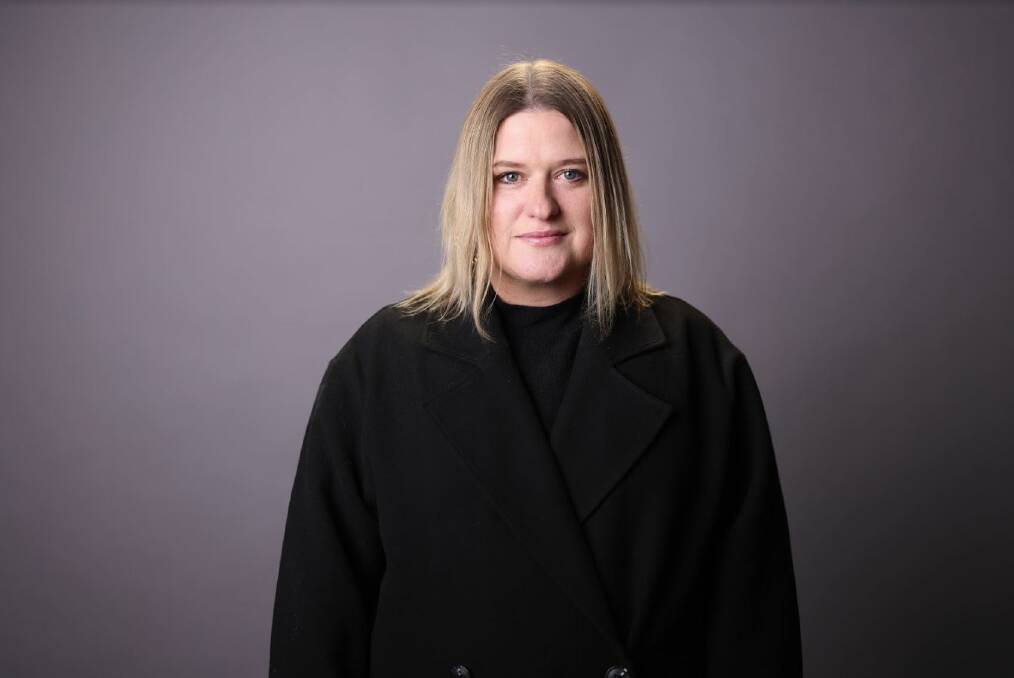
ELISHA Bellingham admits she left it too late in seeking help. Instead, Elisha spent years trying to tough it out and her mental ill-health and trauma caught up with her. Wracked with grief and loss, Elisha finally realised she needed help. And there was also the nagging realisation "staying in bed doesn't pay the bills".
Subscribe now for unlimited access.
or signup to continue reading
Elisa is sharing her story in the hope it will prevent others from merely trying to tough out their troubles. She wants people to focus more on what was so right in their lives, rather than what was wrong.
There is still plenty for Elisha to feel happy about, despite all her darkness after losing both her parents to suicide.
Life was tough growing up for Elisha, who was the youngest of seven children. She realised from a young age her father had died by suicide. He was 33 years old, she was only four, and in the 1980s his death was shrouded in great shame.
This was not something that was ever spoken about.
The family struggled with Elisha's mum fighting to keep food on the table and making sure her children knew they were loved. They lived in housing commission in a "poor part" of Ballarat, Delacombe.
By the time she was 38 years old, Elisha's mum was sick and chose to take her own life.
"I couldn't focus, I was emotional, I was in a dark place, and I couldn't get out of bed anymore. I was paralysed with grief and loss and every day was a fog. I knew I needed help," Elisha said.
"I made an appointment with my [general practitioner] who asked me to answer a few questions and then the discussion turned to medication. While I make no judgement of those who require medication, in my gut I knew that medication was not the right solution for me.
"I needed to address the pain head on: the pain of losing my dad in such a traumatic way when I was a child, and now, the pain of mum taking her own life."
RELATED NEWS
After seeking many avenues for professional help, Elisha signed up to be part of a documentary in learning life skills with positive psychotherapist Marie McLeod.
Somewhat ironically, Delacombe is where Elisha returned for a special screening of the documentary How to Thrive: a practical guide to happiness. When Elisha was growing up, the now-Delacombe Town Centre site that houses Showbiz Cinemas, was grasslands.
A return was bittersweet for the Newport-based Elisha: bitter in acutely confronting her past; sweet in knowing how much had changed and transformed.
Elisha was one of six Melburnians filmed while undergoing the BEACON program. This represents focuses on belonging, engagement, accountability, compassion, optimism, nurture.
Participants were measured on their levels of psychological, physical and social well-being throughout the filming of the program and beyond.
McLeod and a team of consulting psychology leaders and researchers aimed to find potential solutions in an intervention, using evidence-based research, to offer alternatives amid a strained Victorian mental health system.
Elisha has made clear this is not a fix - she was very much a work in progress - but it gave her the tools to move forward.
She knows too, from experience with her siblings, everyone faces grief in their own way.
"We had a pretty rough upbringing and we've all grieved differently but we've all been very respectful of that," Elisha said.
"It's been interesting in ways to navigate. There have been some interesting conversations such as the timing on messages from my sisters remembering Mum but I can't look at those when I'm at work. The older [siblings] are men so they don't talk about it. We've all obviously come closer and pulled through for each other more than before Mum passed."
How to Thrive: a practical guide to happiness has been screening about the state all month. A screening in Delacombe earlier this week was the first time many of her siblings, her nieces and nephews, were to see it.
IN OTHER NEWS
There is a final Victorian cinema screening in Hawthorn this weekend. From here, the movie is set to be showcased in Europe and the United States.
Being part of the documentary has impacted Elisha more than she had realised.
"For me right now, the biggest point is happiness," Elisha said. "I watch the move with hope.
"It can be incredibly overwhelming, so powerful. Everyone who has reached out to me has been a female but I hope it also gets men talking and seeking help.
"One thing that didn't go so well for me in the program was the N part - nurture. I am 15 kilograms heavier now than when I started the program. Now it's ended, I'm working on nurture with lots of personal training and I'm starting running again...There are so many things about this program, like exercise, that are good for mental health."
More details on the documentary are on the website howtothrivefilm.com. The website also features a link to a well-being app that measures people's BEACON score and has tips to improve.
Lifeline, 13 11 14.
Help is also available but not limited to Ballarat Community Health: 5338 4500.
Have you tried The Courier's app? It can be downloaded here.














